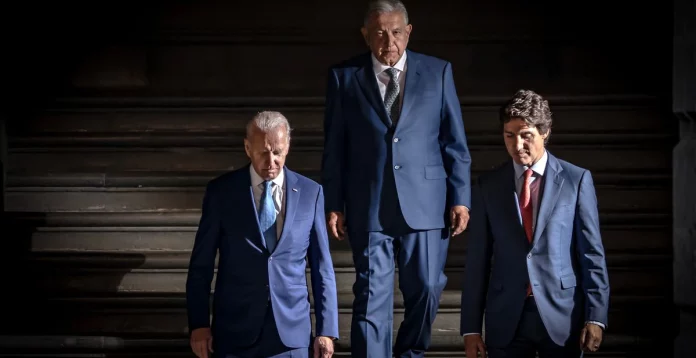Americans know that President Joe Biden’s green agenda has made it more difficult for families to buy gas and groceries.
Now, Canadian central institutions are realizing that Trudeau’s climate-alarmist policies have also dealt a similar blow to their country and its citizens.
According to the authors of the report, this shift — from ethical and stable North American oil to purported alternative sources often reliant upon instable foreign resources of rare minerals — is “perhaps most persistent trend” contributing to inflationary pressures within Canada.
This report refers to a March 2022 speech of Isabel Schnabel (a member of executive board of European Central Bank), in which the Greek economist highlighted that “there is a cost to be paid for going eco at a pace that reflects both the dual objective to safeguard our planet and our rights to self-determination.”
Schnabel believes it is a price worth paying.
She also suggested that “fighting against climate change” is one of the factors that contribute to fossil fuels becoming more expensive.
Oil and its byproducts are not only used to fuel transportation and keep our economy moving, but they are also used in plastics and protective equipment, drugs, plastics, and in the manufacture of materials required for their replacement, such as solar panels or wind turbines.
Schnabel says that countries like Canada will have to deal with “greenflation” during this transition.
The constrained supply and increased demand for these minerals are the reasons for the price spike, which contributes to the so-called green problem.
In an apparent concurring statement in the Wall Street Journal, Mark Mills, Manhattan Institute, stated that “just as high oil prices and natural gas rip the economy, so does the cost of basic minerals. These are essential for every product class, from computers and appliances to houses and cars to computers and homes.” Materials have accounted for a small percentage of the final costs of products in recent times, but that number can rise if mineral prices soar.
Schnabel, European Central Bank, summed up the problems in climate alarmists’ solutions by saying that “the faster and more urgent the transition to a greener economic becomes, the more costly it may become in the short term.”
Ryan Turnbull, a Liberal Member of Parliament, stated that net-zero will not be achieved easily on June 6. … We will have to change our lifestyles, and it can be difficult at times.
Trudeau’s deputy prime minster and Liberal millionaire Chrystia Freiland confronted the pain. She told working- and middle class Canadians overwhelmed by inflation that they could make a difference by ending their Disney+ subscriptions.
Federal carbon taxes that were imposed on Canadians by the Trudeau government have risen dramatically and are expected to continue to rise.
Global News reported that the carbon tax cost was $50 per ton on April 1, 2022. This works out to about 11 cents CDN for every 0.2 gallons.
Trudeau Liberals declared that the price of a ton would rise to $170 CDN per year, or almost 40 cents per liter by 2030.
Jonathan Wilkinson, Liberal natural resources minister, recently announced that he would introduce green-transition legislation in order to help oil and gas workers Ottawa have or will soon leave work to pursue so-called “green energy jobs”.
CTV News reported that millions of Canadians could lose their jobs if the Liberal government fails to meet its emissions targets. This includes 300,000 farmers, 35,000 forest workers, 202,000 energy workers, 193,000 manufacturing workers, 1.4 million building workers, and 642,000 transport workers.
Conservative premier Danielle Smith of Alberta noted that her province, with the fourth-largest petroleum reserves in the world, would be greatly affected by the liberals’ fantasies.
Vaclav Smil, a scientist and policy analyst, suggested that reality would be the best option if liberal politicians fail to decarbonize.
Smil stressed that “both our high relative share of fossil carbon and the size of our dependence make any rapid substitutions impossible: This is not a biased personal perception stemming out of a poor understanding the global energy system — it’s a realistic conclusion based upon engineering and economic realities.”
Inflation and joblessness will continue to be problems until the transition that is supposedly underway meets with significant opposition or reality. Freeland suggests that it might not be so difficult for the financially stressed and unemployed to drop their streaming subscriptions.




